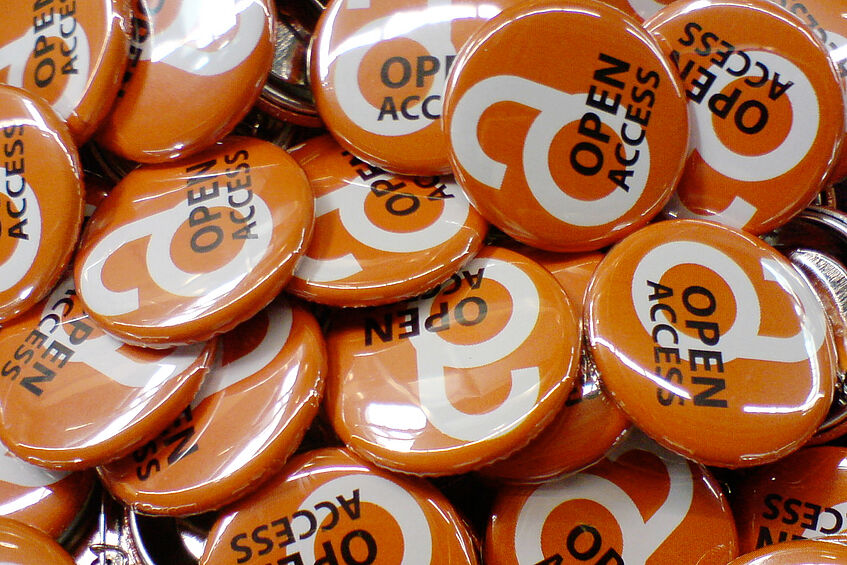OA Basics
Read up on the underlying concepts of ↓ Open Access (OA) as well as on the difference between ↓ Gold/Hybrid OA and ↓ Green OA.
What does Open Access (OA) mean?
The concept of Open Access (OA) stands for unrestricted access to scientific information on the internet at no cost. This includes scholarly publications as well as research data. Open Access encompasses the notion that the results of publicly funded research should be publicly accessible for all interested parties.
Open Access also has many advantages for researchers themselves: it facilitates scientific information exchange, increases the number of readers and citations and improves reproducibility and re-use of content. Open Access is also beneficial in terms of authors' rights: whereas authors usually have to transfer usage rights to the publisher in their entirety when they publish in conventional journals, their rights generally remain with them when they publish Open Access. Publishing is carried out under Creative Commons licences that are conducive to scholarship and ensure proper "attribution" of authors.
Numerous scholars and organisations all over the world have declared their support for Open Access. By signing the "Berlin Declaration on Open Access to Knowledge in the Sciences and Humanities" the University of Vienna expressed its commitment to Open Access which was further elaborated on in the University's Open Access Policy.
The Open Access Office, instituted at the University library, provides University affiliates with support in open access topics.
Gold and Hybrid OA
Gold OA means primary publication of scholarly writing in Open Access journals (i.e. journals that make all articles freely available) or other OA media. Commercial publishers usually demand payment in the form of article processing charges (APCs for short) for this service. An offshoot of Gold OA is so-called Hybrid OA, where articles in subscription journals can be made freely available worldwide in exchange for a fee.
The University of Vienna supports both Gold and Hybrid OA via OA publishing agreements. Publications in Open Access journals outside of these agreements can be supported via our publishing fund (s. OA Funding). Hint: Use our Journal Eligibility Check to determine wheter OA publication in your desired journal can be supported.
Important note: The increase of OA journals in recent years has led to more and more dubious publishers/providers ("predatory publishing") asking for article processing charges without providing adequate services (e.g. quality assurance, copy-editing) in return. Please always make sure you are considering a reputable journal/publisher before submission (s.a. Predatory Publishers: How to Protect Yourself).
Diamond OA
Diamond OA (sometimes also Platinum OA) means Open Access but neither authors nor readers have to provide payment (not even indirectly, such as e.g. in publishing agreements). Diamond models are usually non-profit initiatives by higher education institutions, universities or learned societies and primarily serve the needs of science and scholarship. The University of Vienna supports Diamond OA e.g. with its OJS-Service to facilitate publishing of OA journals.
Green OA
Green OA means secondary publication or self-archiving of scholarly publications on document servers (repositories). More and more publishers allow secondary publication in institutional and/or subject repositories. As an affiliate of the University of Vienna you can use the institutional repository u:scholar for this purpose. You can also find subject repositories for various fields on the open-access.net platform.

